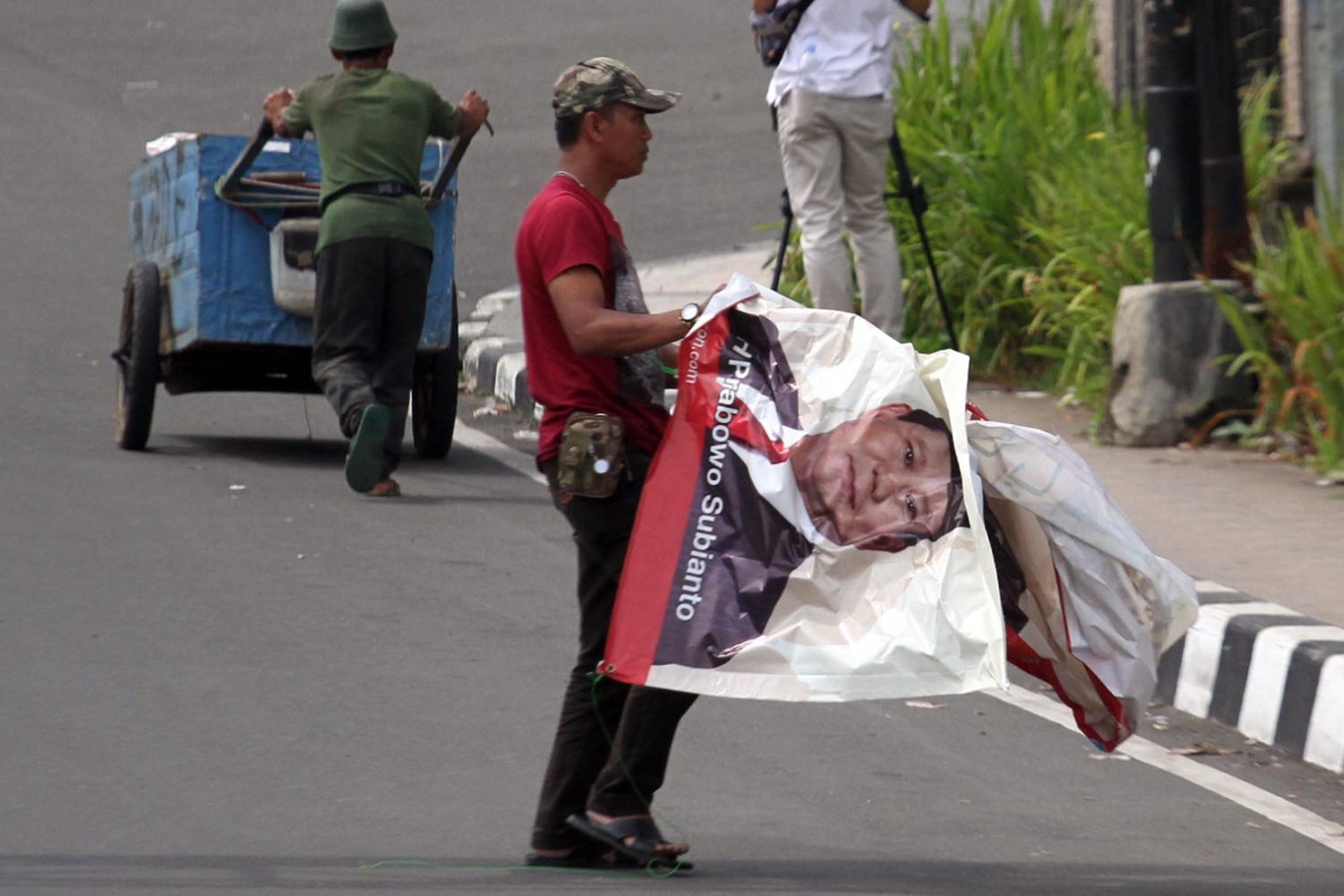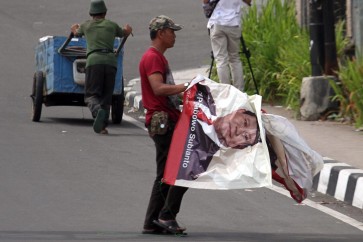Popular Reads
Top Results
Can't find what you're looking for?
View all search resultsPopular Reads
Top Results
Can't find what you're looking for?
View all search resultsIndonesia’s democracy 'deteriorating' over past five years
Experts assessing Indonesia's democratic jouney have bemoaned an "elite-led assault on democratic institution" over the past few years.
Change text size
Gift Premium Articles
to Anyone
 Petugas Satpol PP menurunkan dan mencopot spanduk peraga kampanye Pilkada di Jalan Raya Puncak, Ciawi, Kabupaten Bogor, Jawa Barat, Minggu (24/6/2018). Alat peraga kampanye akan ditertibkan saat memasuki masa tenang pilkada 2018 yang dimulai tiga hari sejak 24-26 Juni 2018. (Antara/Yulius Satria Wijaya)
Petugas Satpol PP menurunkan dan mencopot spanduk peraga kampanye Pilkada di Jalan Raya Puncak, Ciawi, Kabupaten Bogor, Jawa Barat, Minggu (24/6/2018). Alat peraga kampanye akan ditertibkan saat memasuki masa tenang pilkada 2018 yang dimulai tiga hari sejak 24-26 Juni 2018. (Antara/Yulius Satria Wijaya)
E
xperts and scholars gathered in a forum to assess the development of Indonesia's democracy have concluded that, over the past five years, which includes the first term of President Joko "Jokowi" Widodo’s administration, the country's democracy has deteriorated at an alarming rate thanks to an "elite-led assault on democratic institution."
The experts, who study Indonesian politics and hail from overseas research centers and universities, said that, although Indonesia deserved praise for its practice of liberal democracy, registering a quality higher than that of India and only lagging behind countries in Northeast Asia, like Japan and South Korea, it had stagnated in recent years and in fact had begun to regress due to efforts taken by members of the political elite to sabotage democratic institutions.
Scholars Eve Warburton of the Asia Research Institute, National University of Singapore, and Thomas Power from the Department of Indonesian Studies, University of Sydney, said that the full-on assault on democratic institutions took place at the end of the last term of president Susilo Bambang Yudhoyono in 2014, right at the beginning of the first term of President Joko "Jokowi" Widodo.
"In 2014, a consensus emerged that, although reforms had ground to a halt, although democracy was considered stable and when Jokowi was elected he was expected to protect that status quo... the past five years have seen mounting evidence that democracy is eroding at a pace not too many people had predicted," Power said on Tuesday in a discussion to mark the virtual launch of the book Democracy in Indonesia: From Stagnation to Regression?
Power said that the assault on democratic institutions was not a plot hatched by the political elite, but instead was merely an extension of what he called "self-maximization."
He said that the newly-published book outlined multiple cases of elites sabotaging and undermining political institutions to meet their needs.
In the book, a chapter by Australian National University (ANU) scholar Marcus Meitzner, for instance, documents efforts taken by elites to maintain control of political parties, which consequently blunted their effectiveness in carrying out key functions of interest aggregation and articulating demands from voters.

















